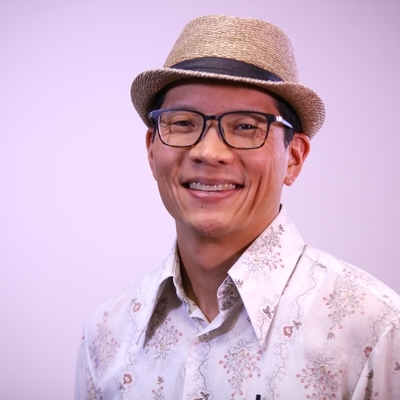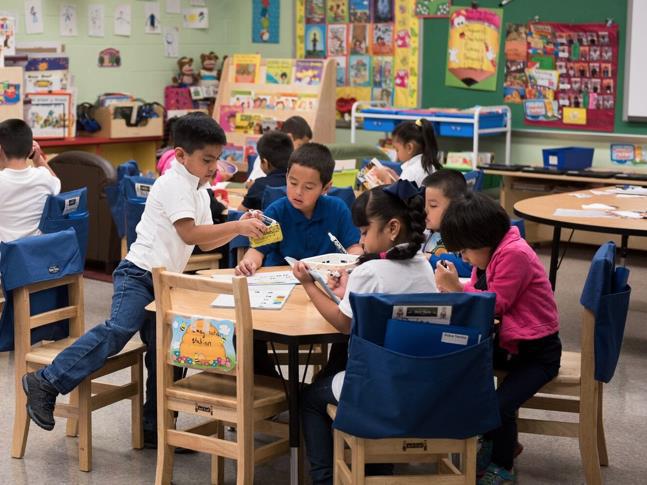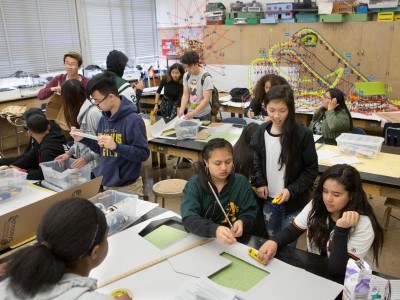Less Scaling Up, More Rooting Down: Lessons for Education from a Japanese Mochi Maker
Topics

When educators design and create new schools, and live next gen learning themselves, they take the lead in growing next gen learning across the nation. Other educators don’t simply follow and adopt; next gen learning depends on personal and community agency—the will to own the change, fueled by the desire to learn from and with others. Networks and policy play important roles in enabling grassroots approaches to change.
If we want to see lasting, meaningful change in our schools, we don't need scale. We need to root down and move at the speed of building relationships and community.
Take a look at the top of any school district’s central office organization chart. You will likely see a “CEO” and other “chiefs.” It’s become common sense in educational reform to welcome “disruption.” District strategic plans talk about “investing” in ideas and exalt the power of “innovation.” The prevalence of all of this corporate language begs the question, when did we start thinking that our education systems needed to be run like private corporations?
Granted, schools have often taken their cues from the economy. Since its origins until today, public education has been expected to produce employees. In the 20th century, the economic system sought assembly line workers; in the 21st, we are told that the economy needs students with the four C’s—creativity, collaboration, critical thinking, and communication.
But the influence of the market in contemporary education isn’t just to demand that schools produce good workers. The for-profit model has taken an insidious hold in the way that we approach educational reform. Improvement is so often about “scaling up” that we don’t question the premise itself—why does everything need to grow and spread as if we were trying to maximize profits? Are we selling smartphones or educating children?
To listen to students is to find the way to improve schools.
Educational reformers have—to use market language—bought into the idea that we can scale our way to improvement, that big data provides a reliable picture of what our children experience in school, and that our solutions should look like a big box store rather than a mom and pop shop. Sure, big box approaches can deliver profits to shareholders and can move products cheaply and quickly at scale, but is that really how we want to run our schools? Has the market mentality so infected our minds that we are now more inclined to see our children as products than as people?
I should hope not.
Here’s where we can learn a lesson from Ichiwa—a Japanese mochi shop. Never heard of it? Well, in the world of Amazon, Google, Baidu, Apple, and other mega-corporations, Ichiwa has done something none of them will likely be able to do—last for a millenium. Yes, for over 1,000 years, Naomi Hasegawa’s family has been selling mochi at the Ichiwa storefront in Kyoto.
Perhaps even more jaw-dropping is that Japan is home to more than 3,100 businesses that have been in existence for over two centuries. Ichiwa and its fellow resilient businesses have survived in the global market by operating from a different set of values—quality before profits. In other words, instead of scaling up, they have rooted down.
Ichiwa is a vital part of the local community. They began with the purpose of feeding pilgrims who journeyed to a local shrine. With that clear purpose, they have refused to grow, expand, or scale. They focus on one thing—mochi—and do it well generation after generation. It’s not about innovation, market disruption, or capitalist ventures.
That special feeling—we are glad you are here—is what a child should get every time they walk onto a school campus.
And you don’t have to be around for a thousand years to mean something to your community. Think about the places that matter to you in your community. Maybe it’s the barber who cuts your hair. Maybe it’s the restaurant owner who knows your order every time you walk in the door. Maybe it’s the librarian who asks about your children by name. I would venture to say that what makes a place special is the sense of belonging, of connection, of being seen. That special feeling—we are glad you are here—is what a child should get every time they walk onto a school campus.
But for a student to feel joy or belonging in school is at odds with the process of scaling, which relies on systems that—in their pursuit of efficiency—become increasingly impersonal. These systems often use what educational thought leader Shane Safir calls “satellite data.” From the sky, we can see some trends like whether students are coming to school or not. But, we have to get down to the level of what she calls “street data” if we want to understand what brings joy to a student. We actually have to ask our students to tell us about their experience in schools and work with them to improve the quality of our schools.
I recently invited students taking Ethnic Studies in Oakland Unified School District to participate in a panel with a group of teachers. We were asking them about their experience in school this past year and what they found valuable. One of the students talked about a project where students were asked to explore their personal identities. They said, “I was going through a rough time at the beginning of the year… and I think especially the self project… made me understand that I am more than my hardships, I am more than my trauma.” While much of our school curriculum focuses outward, this student’s message was that they needed to look inward, to understand their identities, and to see the truth of their humanity as bigger than their hardships.
To listen to students is to find the way to improve schools. This also means that we need to slow down, move at the pace of building relationships and community. Yet, somehow we think the answers to the problems of education will be found in a capitalist logic of speed, expansion, and scaling up—that same logic has encouraged businesses to abandon communities in search of cheaper labor costs or better tax breaks, leaving economic devastation in their wake.
Scaling up, therefore, is exactly the wrong mental model for our schools. Instead, if we want to see lasting, meaningful change, we need to root down. Ms. Hasegawa of Ichiwa was paraphrased as saying, “to survive for a millennium, a business cannot just chase profits. It has to have a higher purpose.” Surely, education is one sector of society where we have a higher purpose: our children.




